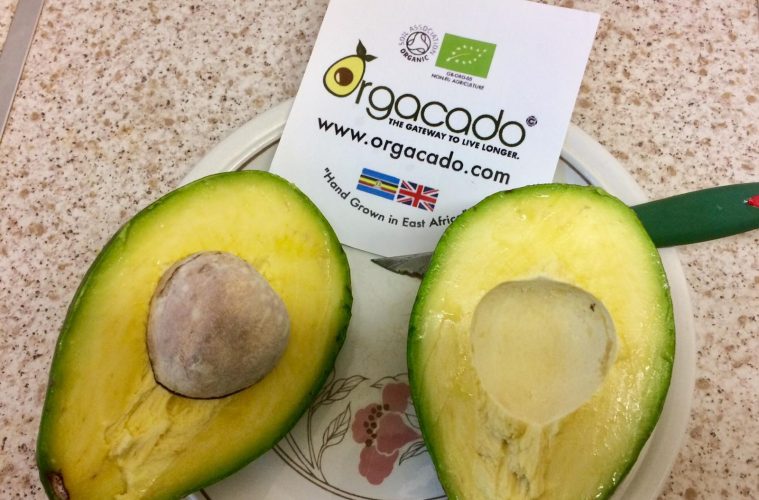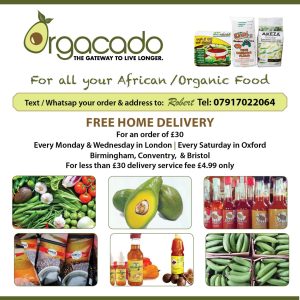Dr Robert James Kalibala is a scientist born in Uganda, East Africa. Raised in Britain from a tender age, he became enthralled with everything medicine as a child. As he grew mature, though still a teenager, he would ask questions such as how does metabolism work? His curiosity about anatomy steered him to study Biological and Medicinal Chemistry as an undergraduate at the University of Exeter, and due to the strong academic reputation of the university, Kalibala felt compelled to continue studying at the same institution, completing two master’s degrees: Biochemistry; and in Applied Biochemistry and Biocatalysts; before commencing a PhD in Medical Clinical Sciences.
‘’When I was young, we used to just get traditional medicine like my mum would give me traditional herbs and then with me I wanted to get the science behind what makes it [herbs] work’’ says Dr Kalibala. During his first degree, Kalibala imported samples of traditional medicine from his native country Uganda to Exeter University to ascertain whether it could be used to combat MRSA in hospitals. His allurement for foods and herbal extracts only persisted when he found that the herb was effective. ‘’We call it bitter melon. The Asians use it as a vegetable for people who are suffering from diabetes and back home [Uganda] we were using these kinds of foods. If you have got malaria, you can drink it’’ argues the businessman.
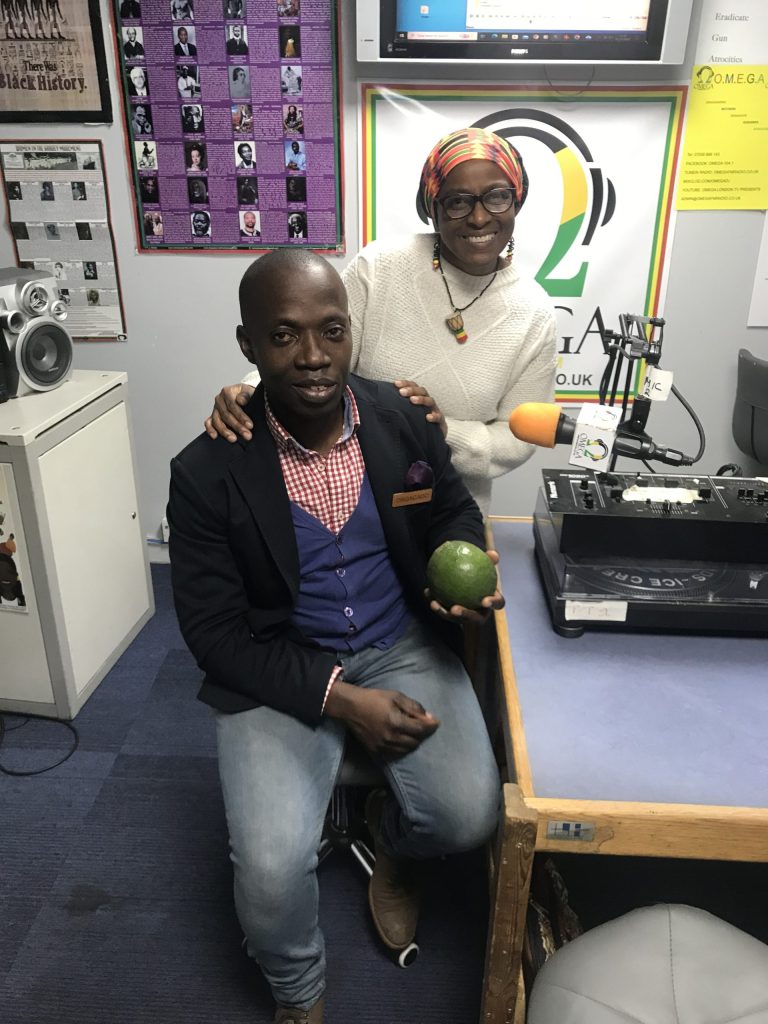
Dr. Kalibala holds an avocado with radio host, Khalilah Ismaiel from Omega Radio in West London
Bitter lemon is also routinely known as bitter gourd and in North India it is typical to find people consuming the sour produce with yogurt to nullify its taste because as Kalibala is desirous to mention ‘’it is very bitter’’. The fruit which is omnipresent in locations such as Kerala in India is said to be native to the African continent and is consumed in countries such as China, Japan, Sri Lanka and Indonesia as well as Caribbean regions such as Trinidad and Tobago where it is often referred to as Carilley, or Caraille. It is purported that the State of Florida has seen a growth in interest also. Although bitter lemon tends to be considered a fruit, it is regularly used as a vegetable.
Dr Kalibala’s curiosity of bitter melon acted as the catalyst for him to pursue a master’s degree where he continued to investigate the nutritional and medicinal benefits of foods and herbs. By this period, Kalibala was adamant that he was more concerned with taking the research route rather than becoming a medical doctor or GP. Kalibala asserts that ‘’When you say someone is a GP or just a doctor, they can’t even tell what you are suffering from something, they send you to a chemist who knows the medicine. The doctor now is just getting information out of you, and they pass it onto to another person’’.
He told Nu Origins: ‘’I want to be an all-rounded person. To know what is exactly what causes what. So, if you are suffering from this I can come and administrator and tell you what medicine to take. So, I don’t have to go to someone, or consult another person at all. That is why I was more interested in the research. The core science’’.
After completing his doctorate, the scientist went on to specialise in early cancer diagnostic tools to attempt to detect early cancer and ultimately increase survival rates. Dr Kalibala’s concern was that too often cancer was being detected late, thus diminishing survival rates. Research published in 2019 and 2020 in the Cancer Epidemiology Journal, found that a quarter of cancer patients experience unnecessary delays. Although the findings involved cases from 2014 and since then referral pathways have been revised. The advent of covid lockdown in the last several years may have hindered progress and almost half of cancer patients are diagnosed at stage 3 and 4.
Kalibala’s impulse to specialise in cancer research was motioned after an African priest who guided him in his formative years like his own son or older brother, tragically died of prostate cancer. Still only seventeen and already knowing he wanted to study chemistry at university and explore the impact of food and herbal medicines on the body, he found it incumbent to study preventative measures of cancer using foods and herbs. ‘’This is what even pushed me to study more to find out what is cancer because all the time I was just hearing cancer, cancer, cancer’’ revealed Kalibala.
Although there are innumerable reasons for developing cancer, Dr Kalibala argues that much of the causes of cancer are related to the food we consume. Kalibala is a strong advocate of eating an abundance of green leafy vegetables to help prevent the offset of deadly diseases. While at university, the former NHS worker would contemplate with a small group of African students about how they could assist Africa in achieving food security.
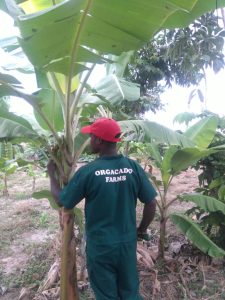
The Exeter University graduate said: ‘’Africa is a continent where we have the good weather, fertile soil. But you see Africa has been hit by famine. So, we have to always ask for food donations from the west and in the west most of the time they are in the winter, and you ask yourself how can they manage to sustain themselves with food and then also to give back?’’
One of his revelations was that traditional farming systems in Africa were being eroded and were being superseded by biotech companies using genetically modified organism (GMO) for mass production. The need for self-sustaining foods in Africa is fundamental according to Kalibala. He contends: ‘’When you plant the GMOs seeds you can only use them once. They won’t to terminate again. You have to go back and buy new seeds again. That is what is affecting food security there’’.
The ramifications of GMOs have been perturbing. Dr Kalibala argues that many farmers in Africa are unable to afford to buy GMOs seeds repeatedly and even in cases where they are able, the consequences are counterproductive and only propounds a dependency culture fettering farmers into subordination. Produce is then imported at astronomical rates that many civilians are unable to afford, and people are malnourished.
A 2022 report in Reuters highlights some of the grave consequences of GMOs where a planter, Dick Olela has been growing maize on his land in Western Kenya for over thirty years, but with Kenyan governments introduction of GMOs, fears over his future have heightened.
‘’If you look at my logo it is a big avocado with a seed in the middle with leaves. I am trying to preserve the seed. I want people to know me as the avocado person. That is why it is embedded in the name and my logo as well. Even my van has a big avocado’’
Already somewhat desensitized to seeing seedless grapes, tomatoes, oranges and corn the last straw for Dr Kalibala was when he discovered that nothing appeared to be sacred. In Uganda, his native country, Uganda avocados was under threat. ‘’The move to have seedless avocado means they want to wipe away the indigenous avocados we have. You know those big avocados? They want to get rid of them and have the tiny ones’’ says Kalibala.
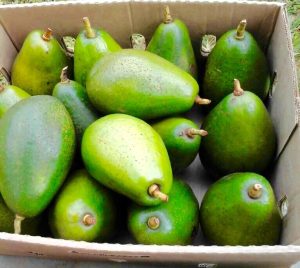
Avocados are revered by Kalibala for a multitude of reasons. For Kalibala, the nutritional density and of the fruit has always impressed him. His parents have an enormous avocado tree in Uganda and although raised in the UK, Kalibala would frequent his home country and began importing avocados to supplement his tuition fees.
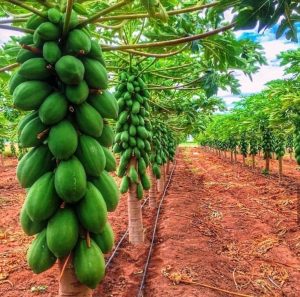
But avocados were not just a side hustle to generate additional money. Kalibala was concerned about the avocado as he knew it.
With a sense of urgency, Kalibala renounced his lucrative job at the NHS in Devon. Propelled to do something about the precarious longevity of avocados in 2018, Orgacado was born. The name Orgacado was first conceived while Dr Kalibala was still a doctoral student. The name consists of the first four letters of the word organic and cado the remanding four letters of the fruit avocado.
Already popular amongst fellow students in Exeter for selling avocados, Kalibala built on this reputation, and it was not long before his succulent avocados were being stocked in local health food shops in Exeter. Dr Kalibala said: ‘’If you look at my logo it is a big avocado with a seed in the middle with leaves. I am trying to preserve the seed. I want people to know me as the avocado person. That is why it is embedded in the name and my logo as well. Even my van has a big avocado”. Kalibala who now resides in London generated much interest from popular health food stores in the city, with the now defunct As Nature Intended being a visible brand he supplied to and the upmarket supermarket, Waitrose. He continued: ‘’If I get the market for these big avocados then small farmers can have something that they are getting an income from. So, the farmers will continue growing them. Since I have started everyone is talking about the big avocado’’.
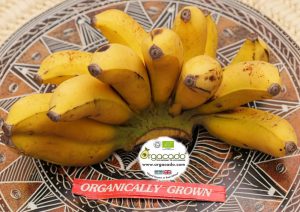
Not a one trick pony, the businessman also distributes produce such as small bananas and mangos. Most of the produce is imported from Uganda, but he also imports from countries such as Kenya, Tanzania, Burundi, Malawi and recently Zimbabwe.
In 2021, Dr Kalibala began to receive letters from British online grocer, Ocado. He said: ‘’They wrote to me and said I think you stole my name. That I am similar to their name, and I am confusing their customers and also I am stealing their customers. Which to me I didn’t understand what they are talking about. Ocado, they have got more than a million customers and on their waiting list they have more than half a million customers. So you tell me which customers am I stealing their million customers, or the ones on the waiting list’’. Kalibala went on the Intellectual Property website to find the name Orgacado was still available and proceeded to trademark the name and logo but was denied by Ocado. The purveyor also claims Ocado tried to entice him with money to alter his logo and change his company name.
A procession of tribunals has taken place and due to lack of adequate financial capital, Dr Kalibala was not able to hire a versed legal representative. Consequently, the ruling of the tribunal went in Ocado’s favour. Out of his depth and later discovering that his entire evidence was not even included in the hearing, Kalibala remains determined to retain his company’s brand. This month, Kalibala submitted an appeal to the high court. To ensure he is victorious in his continued fight, he is appealing to members of the public to support his GoFundMe page.
The journalist approached Ocado for comment.


